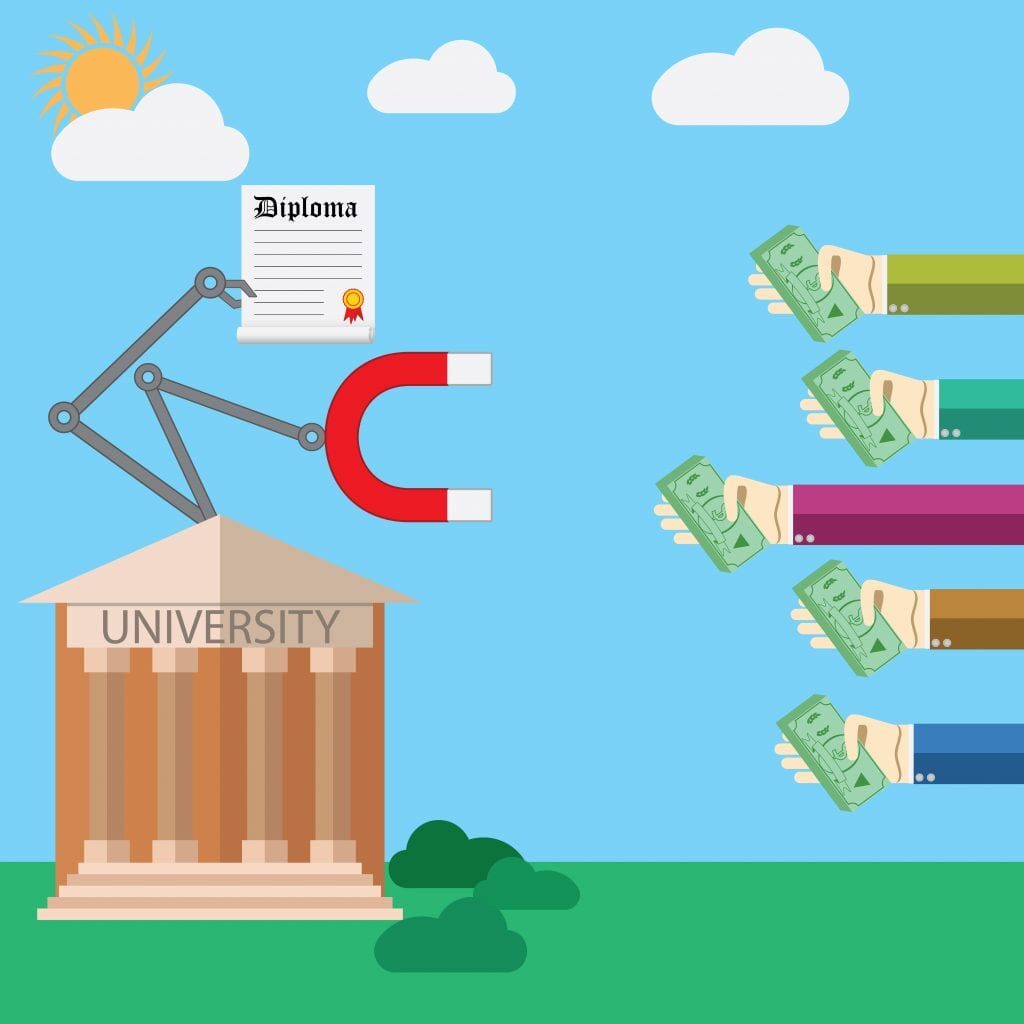Insights < BACK TO ALL INSIGHTS
Jumping To Judgment on For-Profit Education
Jumping To Judgment on For-Profit Education
By: Nicole Kardell
If you didn’t know any better, you might have gotten pretty fiery over for-profit education after reading one of the front page stories of Tuesday’s New York Times. The lengthy article titled “For-Profit Colleges Fail Standards, but Get Billions” is all about accusations of greedy institutions bilking taxpayers and taking advantage of students through fraud and other deceptive practices. Why the story ran on page one of the paper is anybody’s guess: the only timely element in the piece appeared toward the end of the article, where the author mentioned the Defense Department’s recent decision to bar the University of Phoenix from its tuition assistance program. By the time you got to that part of the article, you might have cheered the DOD’s decision to cut the educator off, despite the fact that the decision appears premature, based on allegations as opposed to findings (meaning they are meting out punishment before a full investigation or review).
The New York Times piece seems narrowly focused on denigrating an industry that has become the bastard-stepchild of higher education. Ever since U.S. Sen. Tom Harkin decided to take on for-profit education, the industry has been under intense scrutiny from state and federal regulators as well as partisan research and advocacy groups. The article would have readers believe that all the negative attention is the equivalent of substantiated claims that for-profit education is a fraud on federal student loan programs. Thirty-seven state attorneys general, the Securities and Exchange Commission, the Consumer Financial Protection Bureau, the Department of Justice, and the Federal Trade Commission are all investigating for-profit schools. These schools must be horrible, right? But what the article lacks are legal holdings or findings of fact.
That several agencies are investigating industry participants is not tantamount to guilt: it is more reflective of the fact that regulators take their cues from other regulators. Once an industry becomes unpopular, everyone wants to jump in and get their piece of the pie … or the felled lion. For-profit education is now an obvious target. But, again, that does not make the industry per se bad.
Nor does the fact that many for-profit educators have settled with regulators mean they are guilty: people and companies alike perform a cost-benefit analysis when it comes to whether to fight or stand down. It often makes economic sense to settle out with regulators rather than stay the course through potentially lengthy costly litigation.
What is troubling is the undercurrent – and application – of guilt before innocence, both by the New York Times article and by regulators. What is missing is a comparison of how much for-profit education costs per student versus how much other schools cost, or what dropout rates and post-graduation employment rates look like across schools for single parents and the poor (the types of individuals typically enrolled in for-profit colleges). For instance, studies have shown that community colleges are costing taxpayers billions of dollars for uncomfortably high drop out rates. Other studies identify taxpayer subsidies covering significant amounts of college operating costs.
One of the major reasons why for-profit education has high drop-out rates and poor post-grad employment rates is that they are reaching individuals who otherwise may not have access to degree programs, such as single parents or people in economically depressed areas. These individuals have other complications in their lives that can make completing a degree or finding gainful employment more challenging (e.g., scheduling, transportation). These challenges are not the schools’ fault, but a reflection of external factors. Punishing the schools and taking away educational opportunities does not seem like the most thoughtful decision, but it’s the one that partisan groups, partisan journalists, and regulators seem to be angling for.
Instead of celebrating the Defense Department’s decision to cut off the University of Phoenix from its tuition assistance program, we should be troubled that it is doing so before completing an investigation. In a statement, the University noted that: “It is troubling that DoD has used requests for information from other governmental agencies as grounds for placing the university’s DoD MOU in a probationary status.”
For-profit education does have, and has had, its bad actors… as does every industry. But the all-out slam against the sector, the fight for its demise, is unfair and shortsighted. In the end, the greatest losers will be historically underserved populations who will be denied education opportunities.





